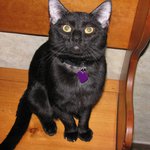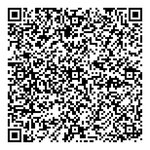MODSERIAL with support for more devices
Dependents: 1D-Pong BMT-K9_encoder BMT-K9-Regelaar programma_filter ... more
Check the cookbook page for more information: https://mbed.org/cookbook/MODSERIAL
Did you add a device? Please send a pull request so we can keep everything in one library instead of many copies. In that case also send a PM, since currently mbed does not inform of new pull requests. I will then also add you to the developers of this library so you can do other changes directly.
Revision 1:b7e435fbfe8e, committed 2010-11-21
- Comitter:
- AjK
- Date:
- Sun Nov 21 02:15:07 2010 +0000
- Parent:
- 0:eb2522b41db8
- Child:
- 2:b936b4acbd92
- Commit message:
- 1.1
Changed in this revision
--- /dev/null Thu Jan 01 00:00:00 1970 +0000 +++ b/ChangeLog.c Sun Nov 21 02:15:07 2010 +0000 @@ -0,0 +1,13 @@ +/* $Id:$ + +1.1 - 20/11/2010 + + * Added this file + * Removed cruft from GETC.cpp + * "teh" should be "the", why do my fingers do that? + +1.0 - 20/11/2010 + + * First release. + +*/ \ No newline at end of file
--- a/GETC.cpp Sat Nov 20 16:54:05 2010 +0000
+++ b/GETC.cpp Sun Nov 21 02:15:07 2010 +0000
@@ -25,8 +25,6 @@
namespace AjK {
-int x = 0;
-
int
MODSERIAL::__getc(bool block)
{
--- a/MODSERIAL.h Sat Nov 20 16:54:05 2010 +0000
+++ b/MODSERIAL.h Sun Nov 21 02:15:07 2010 +0000
@@ -171,15 +171,15 @@
*
* The Mbed standard <a href="/handbook/Serial">Serial</a> library object allows an interrupt callback
* to be made when a byte is received by the TX or RX UART hardware. MODSERIAL traps these interrupts
- * to enable it's buffering system. However, after the byte has been received/sent under interrupt caontrol,
+ * to enable it's buffering system. However, after the byte has been received/sent under interrupt control,
* MODSERIAL can callback a user function as a notification of the interrupt. Note, user code should not
- * directly interact with teh Uart hardware, MODSERIAL does that, instead, MODSERIAL API functions should
+ * directly interact with the Uart hardware, MODSERIAL does that, instead, MODSERIAL API functions should
* be used.
*
* <b>Note</b>, a character is written out then, if there is room in the TX FIFO and the TX buffer is empty,
* putc() will put the character directly into THR (the output holding register). If the TX FIFO is full and
* cannot accept the character, it is placed into the TX output buffer. The TX interrupts are then enabled
- * so that when teh TX FIFO empties, the TX buffer is then transferred to the THR FIFO. The TxIrq will ONLY
+ * so that when the TX FIFO empties, the TX buffer is then transferred to the THR FIFO. The TxIrq will ONLY
* be activated when this transfer of a character from BUFFER to THR FIFO takes place. If your character
* throughput is not high bandwidth, then the 16 byte TX FIFO may be enough and the TX output buffer may
* never come into play.
@@ -230,15 +230,15 @@
*
* The Mbed standard <a href="/handbook/Serial">Serial</a> library object allows an interrupt callback
* to be made when a byte is received by the TX or RX UART hardware. MODSERIAL traps these interrupts
- * to enable it's buffering system. However, after the byte has been received/sent under interrupt caontrol,
+ * to enable it's buffering system. However, after the byte has been received/sent under interrupt control,
* MODSERIAL can callback a user function as a notification of the interrupt. Note, user code should not
- * directly interact with teh Uart hardware, MODSERIAL does that, instead, MODSERIAL API functions should
+ * directly interact with the Uart hardware, MODSERIAL does that, instead, MODSERIAL API functions should
* be used.
*
* <b>Note</b>, a character is written out then, if there is room in the TX FIFO and the TX buffer is empty,
* putc() will put the character directly into THR (the output holding register). If the TX FIFO is full and
* cannot accept the character, it is placed into the TX output buffer. The TX interrupts are then enabled
- * so that when teh TX FIFO empties, the TX buffer is then transferred to the THR FIFO. The TxIrq will ONLY
+ * so that when the TX FIFO empties, the TX buffer is then transferred to the THR FIFO. The TxIrq will ONLY
* be activated when this transfer of a character from BUFFER to THR FIFO takes place. If your character
* throughput is not high bandwidth, then the 16 byte TX FIFO may be enough and the TX output buffer may
* never come into play.
@@ -523,7 +523,7 @@
/**
* Function: txGetLastChar
*
- * Rteurn teh last byte to pass through the TX interrupt handler.
+ * Rteurn the last byte to pass through the TX interrupt handler.
*
* @ingroup MISC
* @return The byte
@@ -543,7 +543,7 @@
/**
* Function: txIsBusy
*
- * If teh Uart is still actively sending characters this
+ * If the Uart is still actively sending characters this
* function will return true.
*
* @ingroup API
@@ -614,7 +614,7 @@
volatile char rxc;
/**
- * Pointers to teh TX and RX buffers.
+ * Pointers to the TX and RX buffers.
* @ingroup INTERNALS
*/
volatile char *buffer[2];
@@ -690,7 +690,7 @@
/**
* Put a character from the TX buffer
* @ingroup INTERNALS
- * @param bool True to block (wait for space in teh TX buffer if full)
+ * @param bool True to block (wait for space in the TX buffer if full)
* @return 0 on success
*/
int __putc(int c, bool);
 Erik -
Erik -




